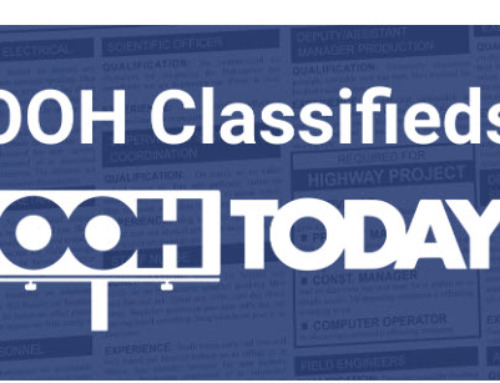Lab Weekly — 10/17/2025 The latest investment trends Plus, the latest news about Netflix, Walmart, and Apple; plus, more must-know news and stats
Want this newsletter in your inbox every week? Sign up for our mailing list here

Losing trust in legacy finance and leery of new fintech offerings, young people are increasingly relying on their own communities and intuition for advice

What brands need to know about OpenAI’s Dev Day 2025 event
Sora and Vibes: AI Video Now Officially Going After Social Media
Here are some implications and opportunities for brands and marketers to consider
Three Major Retail Trends of 2025
From the expanding definition of value-driven shoppers, to the rise of channel-less retail experiences, here are some of the latest retail trends that brands should know

As part of the content deal, Netflix will show video versions of 16 Spotify podcasts on sports, entertainment, and true crime. The deal prevents the shows from airing in their entirety on YouTube, Netflix’s biggest competitor. Video podcasts have been on the rise as listeners have increasingly come to prefer watching podcasts, and on their televisions at that.
For Spotify and creators like Bill Simmons, who built audiences through traditional podcast distribution, the Netflix deal provides a way to monetize premium content without surrendering control to YouTube’s ecosystem. For Netflix, adding popular video podcasts helps diversify beyond scripted programming and deepen engagement with creator-driven content. It also signals that Spotify and Netflix are aligning against a common enemy: YouTube’s dominance as both the discovery engine and monetization hub for creator content.
More broadly, this partnership highlights how podcasting is evolving into a TV-adjacent medium. Platforms are experimenting with licensing, ad integration, and hybrid distribution models to overcome the limits of traditional podcast monetization. As YouTube, Spotify, Netflix, and others compete for creator content, the lines between podcasts, talk shows, and streaming originals are blurring. In the end, everything is television, as analyst Derek Thompson recently mused in a viral essay.
Related: Netflix brings video games to its streaming service for first time [Bloomberg]; Spotify working on AI music tools with major record labels [BBC]
Walmart Partners With OpenAI to Offer Shopping on ChatGPT [Bloomberg]
ChatGPT users will soon be able to shop Walmart’s products by clicking a “buy” button, with the catalog including apparel, entertainment, packaged food, and more. The new function will launch in the fall, with customers’ current Walmart or Sam’s Club accounts getting automatically linked to ChatGPT, and goods also being available from third-party sellers.
AI-driven agentic commerce is still in its early stages of development, but it is clearly something that retailers are keeping a close eye on. Last month, OpenAI introduced Instant Checkout to enable third-party partners, such as eBay and Shopify, to surface their product listings in ChatGPT answers. This move by Walmart to join ChatGPT should be able to help the retailer capture more shoppers that are less likely to be regular Walmart customers. If a ChatGPT user gets a product recommendation, and needs to go search for that product in the browser, the most likely place they would go is Amazon; now they can just click directly into Walmart for purchase.
For ChatGPT, adding Walmart-backed shopping to their offering is yet another way to extend its user cases and make the service more sticky. By integrating a trusted retail partner like Walmart, ChatGPT can bridge the gap between intent and purchase, giving users a seamless way to act on recommendations or gifting ideas discovered in chat.
Related: India pilots government-backed chatbot payments system [Semafor]; ChatGPT will soon allow erotica for verified adults, says OpenAI boss [BBC]
Apple to Bring Live NBA Games to the Vision Pro in 2026 [Engadget]
After months of criticism over its stagnant immersive video library, Apple is finally giving Vision Pro users something to look forward to: live NBA games. Beginning in early 2026, select Los Angeles Lakers games will stream in Apple’s Immersive format on the Vision Pro, captured with Blackmagic URSA Cine Immersive cameras. The broadcasts will be available through both the NBA and Spectrum SportsNet apps, marking Apple’s most ambitious push yet into real-time immersive content.
Apple’s quiet recent rollout of its new M5 chip, powering refreshed iPad Pro and MacBook Pro models, is also coming to the Vision Pro. The chip promises smoother graphics and better power efficiency, both critical for live, high-resolution sports streams. However, the lack of a trade-in or upgrade program for current Vision Pro owners could frustrate early users who invested heavily in first-generation hardware. Still, Apple’s entry into live immersive sports is a clear signal of intent: it’s moving beyond demos and short-form clips to real, repeatable content that showcases the Vision Pro’s long-term potential.
Related: Apple Vision Pro adds support for PlayStation VR2 Sense controller in November [9to5Mac]; Apple TV+ Being Rebranded as Apple TV [MacRumors]
Situational Awareness: DoorDash will use Waymo’s robotaxis for delivery in Phoenix [The Verge]
Shortly after announcing its London expansion, Waymo announced its reentry into food delivery via a partnership with DoorDash in Phoenix, which will use Waymo’s fully driverless SUVs to deliver orders placed through DoorDash’s DashMart service. This partnership underscores the growing push toward automation in last-mile delivery, as companies seek to reduce labor costs and improve delivery efficiency. If successful, this model could accelerate automation in the food delivery market, forcing competitors like Uber Eats and Amazon to deepen their own investments and redefining the economics of on-demand delivery. However, the need to fetch orders curbside could limit appeal, and widespread adoption will hinge on consumer comfort and cost.
Pinterest adds controls to let you limit the amount of ‘AI slop’ in your feed [TechCrunch]
Pinterest’s update reflects a broader reckoning among platforms facing an AI content saturation crisis. As generative tools flood social feeds and search results, companies are being forced to confront the tension between AI-driven scale and user trust. Pinterest’s approach of offering users control rather than banning AI entirely is one that we could see more platforms adopt, but it’d also require the platforms and creators to correctly label and disclose AI-generated content.
California becomes first state to regulate AI companion chatbots [TechCrunch]
California has become the first U.S. state to regulate AI companion chatbots under a new law, SB 243, signed by Governor Gavin Newsom. The legislation, taking effect January 1, 2026, mandates that AI chatbot operators must implement safety protocols to protect minors and vulnerable users. This law marks a first step toward addressing AI accountability and user protection, setting a precedent that other states are likely to follow.
- The number of people listening to an audiobook on Spotify rose 36% in the past year, while the number of hours consumed grew 37%, Bloomberg reports. Spotify gives subscribers 15 hours a month of listening to audiobooks, allowing audiences to sample various books without exceeding their allotment.
- People around the world are more concerned about AI than excited about it, according to a new survey by Pew Research Center. This survey of 28,000 adults in 25 countries found that 34% of them (and 50% in the U.S.) are more concerned than excited about AI. Only 16% say they are more excited than concerned about AI.
- More studies are coming out about the cognitive cost of social media use for young people. A new JAMA study using data on 6K students tracked from when they were 9–13-years-old shows those who spent about an hour a day on socials scored up to two points lower on reading and memory tests than non-users, NPR reports. That’s even on the relative “low” end; those spending three or more hours daily on socials saw decreased scores up to five points.
If you find our insights valuable and would like to have a deeper conversation on technology and media innovations, or need to sound smarter in a client meeting or a pitch, please feel free to reach out to Ryan Miller, our Director of Partnerships, at ryan.miller@ipglab.com.
If you liked this edition of Lab Weekly by IPG Media Lab, why not share it?
Lab Weekly — 10/17/2025 was originally published in IPG Media Lab on Medium, where people are continuing the conversation by highlighting and responding to this story.








